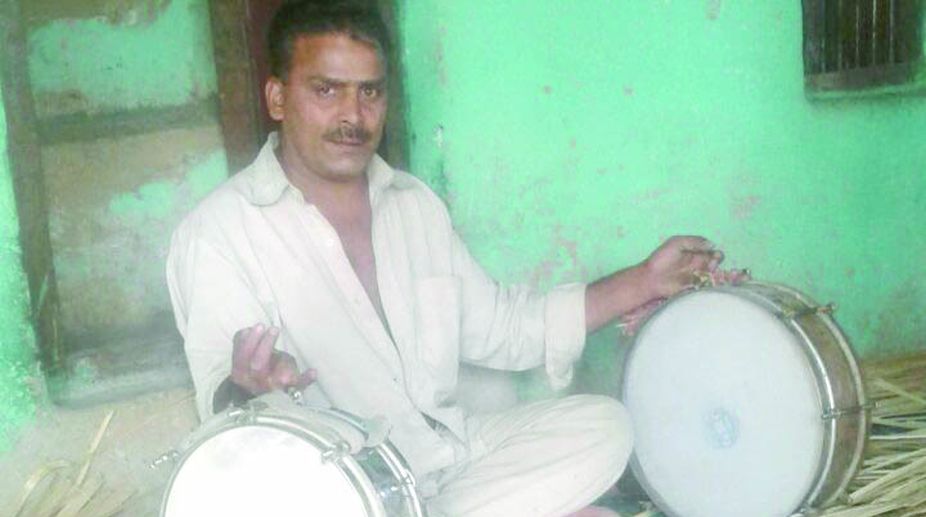Ahead of LS polls, 70343 licensed firearms deposited in Himachal Pradesh
Revealing this, a spokesperson of the Himachal Pradesh Election Department here on Tuesday, said: “Besides, these 3278 weapons have been impounded or cancelled.”

Dholru, a folk song tradition of Himachal Pradesh, which is generally performed in March-April, is on the verge of extinction.
The tradition belongs to the Dom community, also known as ‘Chaitra Sankranti couples’, who visit houses in their native places and sing Pahari songs during Chaitti, an important festival for the people of Himachal, especially in Kangra and Chamba districts.
Chaitti is celebrated as the first day of the month of Chaitra which, according to Bikram Samwat is the first day of the Hindu New Year. The first day of this month (Chaitra Sakranti) is very important and celebrated all over the state.
Advertisement
The Dom community sings different types of songs (Dholru) like Dhoban, Bijlu, Kandu, etc. The songs comprise all the names of the upcoming months, especially Chaitra, stories of Puranas and blessings for a happy upcoming year.
The members of this community, usually in pairs, go door-to-door with a dholak (two headed- hand drum) and sing the songs. “I am singing on Chaitra Sankranti for the last 80 years. I was 7 years old when I started singing and visiting houses with my grandfather. Then I was accompanied by my wife. She used to collect grains and clothes given to us by the people as gifts,” said Balku Ram, an 88-year old from Chintpurni, Una.
The people consider it a sign of good fortune to hear the songs at their doorstep. “My son and daughter-in-law live in Singapore. Whenever these people come to sing the songs, I record them and send the video to my son. They are lucky and its augurs well for a prosperous future to hear the names of the months in the songs,” said Kanta Guleria, a 60-year- old in Dharamshala.
The people wait for the members of this community to visit their houses in March-April every year.
There is an old story behind this tradition of singing and listening to songs on Chaitti by members of this community. “Lord Shiva blessed our community with this talent of singing, especially in this month of the year. He gave us the divine boon that it will be beneficial and lucky for everyone to hear the names of the upcoming months and blessings in the form of songs on Chaitti from us,” said Kesari Devi, an 80-year old from Dehra Gopipur.
In this month of Chaitra, the singers earn up to Rs 800 and 1 to 2 quintal of grains, along with new and old clothes donated by people. For the rest of the year, these people earn their livelihood by singing and playing instruments at marriages, singing bhajans at funerals, weaving wooden baskets, etc.
“I have 4 sons and 3 daughters. I have raised all of them on the income generated by singing songs my entire life. They all are grown up now. My daughters are pursuing this tradition because of lack of money but my sons are not in favour of doing this their whole life,” added Kesari Devi.
The influence of westernisation has sidelined this rich culture. The youngsters of the community have shifted to cities for better jobs. Only the aged performers are left behind to follow this culture. As there is lack of interest in today’s generation in old traditions, there is little value for this rich heritage of the state.
The other reason for the extinction of this culture is the stigma attached to it. People believe that it only belongs to a particular section of society and thus don’t want to learn this form of music. The grand old man, Balku Ram now visits houses all alone after the demise of his wife. “My sons and grandchildren do not want to come along with me to sing the songs. They don’t have any interest in keeping this culture alive. And same is the case with my village people,” he added.
The tradition is no more seen in cities and towns, although the rural areas still show some love for it.
Advertisement